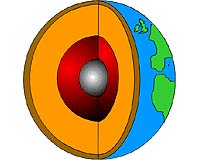| . |  |
. |
Davis CA (SPX) Feb 01, 2011 Ecology drives evolution. In the next issue of Science, UC Davis expert Thomas Schoener describes growing evidence that the reverse is also true, and explores what that might mean to our understanding of how environmental change affects species and vice-versa. A classic example of ecology influencing evolution is seen in a Galapagos ground finch, Geospiza fortis. In this species, larger beaks dominated the population after dry years when large seeds were more abundant. After wet years, the direction of natural selection reversed, favoring smaller beaks that better handled the small seeds produced in the wet environment. Environmental factors had given birds with certain genes a survival advantage. But does evolution affect ecology over similar time scales? Scientists are increasingly thinking that the answer is yes, says Schoener, who points toward numerous examples of organisms evolving rapidly. This sets the stage for the possibility that evolutionary dynamics routinely interact with ecological dynamics. Schoener writes: "If ecology affects evolution (long supported) and evolution affects ecology (becoming increasingly supported), then what? The transformed ecology might affect evolution, and so on, back and forth in a feedback loop." Still to be discovered in this emerging field of "eco-evolutionary dynamics," he concludes, is just how much evolutionary changes substantially affect ecological traits such as species populations and community structure. Schoener calls for a major research effort to find out. The study, titled "The Newest Synthesis: Understanding the Interplay of Evolutionary and Ecological Dynamics," was supported by grants from the National Science Foundation. In an unusual occurrence, Schoener is a co-author of a second paper in the same issue of Science. His former doctoral student, Jonah Piovia-Scott, is that paper's lead author.
Share This Article With Planet Earth
Related Links University of California - Davis Dirt, rocks and all the stuff we stand on firmly
 When Continents Formed
When Continents FormedBristol, UK (SPX) Jan 17, 2011 The continental crust is the principal record of conditions on the Earth for the last 4.4 billion years. Its formation modified the composition of the mantle and the atmosphere, it supports life, and it remains a sink for carbon dioxide through weathering and erosion. The continental crust therefore has had a key role in the evolution of the Earth, and yet the timing of its generation rema ... read more |
|
| The content herein, unless otherwise known to be public domain, are Copyright 1995-2010 - SpaceDaily. AFP and UPI Wire Stories are copyright Agence France-Presse and United Press International. ESA Portal Reports are copyright European Space Agency. All NASA sourced material is public domain. Additional copyrights may apply in whole or part to other bona fide parties. Advertising does not imply endorsement,agreement or approval of any opinions, statements or information provided by SpaceDaily on any Web page published or hosted by SpaceDaily. Privacy Statement |